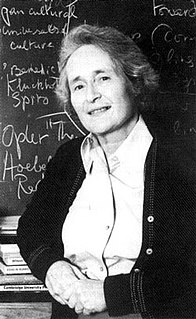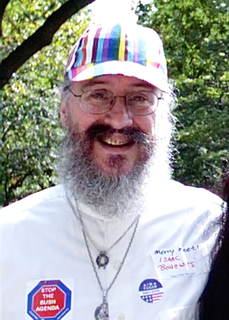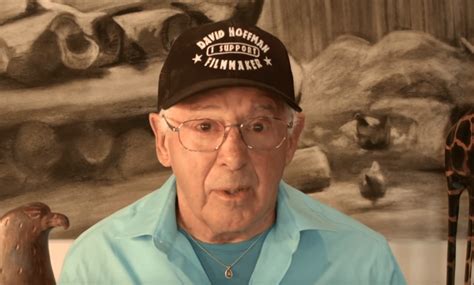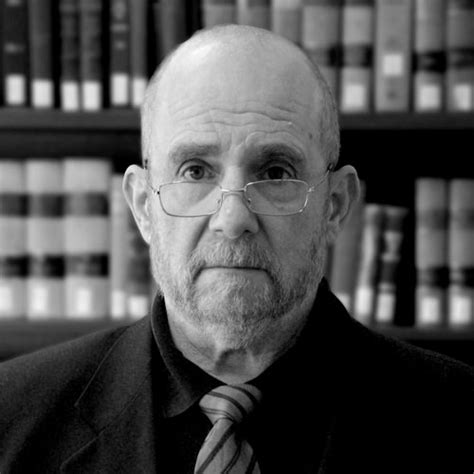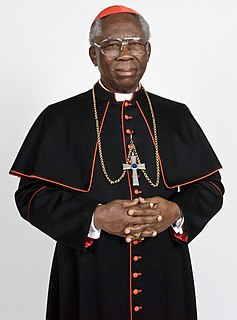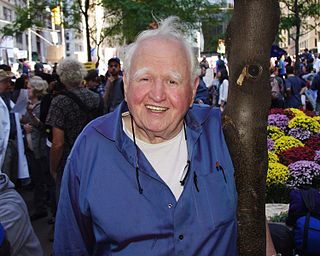A Quote by Mary Douglas
Some scholars have been arguing that a civilizational clash between organized religions is the next step in human history.
Related Quotes
It is your organized religions that have made it clear through their most sacred scriptures that cruelty and killing is an acceptable response to human frailty and human differences. This goes against every human instinct, but organized religion has reorganized human thoughts. Some humans have even been turned against their own instinct for survival. And so people go around maiming and killing each other, because they've been told quite directly that this is what God does to them--and what God wants them to do to each other.
Yet rather than calling the earliest religions, which embraced such an open acceptance of all human sexuality, 'fertility cults,' we might consider the religions of today as strange in that they seem to associate shame and even sin with the very process of conceiving new human life. Perhaps centuries from now scholars and historians will be classifying them as 'sterility cults.
If animals are no longer quite outside the moral sphere, they are still in a special section near the outer rim. Their interests are allowed to count only when they do not clash with human interests. If there is a clash - even a clash between a lifetime of suffering for a nonhuman animal and the gastronomic preference of a human being - the interests of the nonhuman are disregarded. The moral attitudes of the past are too deeply embedded in our thought and our practices to be upset by a mere change in our knowledge of ourselves and of other animals.
Actually, the highest form of human organization is not realized in the democratic individual. It is realized in a dimension none of us have ever penetrated, which is the mind of the species, which is actually the hand at the tiller of history. . . . It is an organized entelechy of some sort, and human history is its signature on the primates.
Scholars have been arguing for a long time whether the Soviet Union could have been turned into some kind of social democracy. I doubt it myself. I think what Gorbachev didn't quite understand, until it was too late, is that his efforts at change unleashed new, certrifical forces he hadn't counted on. He opened the door a crack and a huge wind blew it open.
There's crucial distinction that has to be drawn between the Shari'a, which is this hugely expansive vision of cosmic order that I've been describing, and principles of Islamic law, known in Arabic as "Fiqh" - a word that means understanding. If you're a devout Muslim, you don't argue against the Shari'a; the Shari'a is the path that God has laid down. But what you can do, and what people are doing all the time, is arguing over the correct interpretation of the Shari'a, arguing over the Fiqh. That's something that has been going on throughout Islamic history.
Contemporary scholars have little explored the preconditions of genocide. Still less have they asked whether a society's weapons policy might be one of the institutional arrangements that contributes to the probability of its government engaging in some of the more extreme varieties of outrage. Though it is a long step between being disarmed and being murdered - one does not usually lead to the other - but it is nevertheless an arresting reality that not one of the principal genocides of the 20th century, and there have been dozens, has been inflicted on a population that was armed.
The history of religions reaches down and makes contact with that which is essentially human: the relation of man to the sacred. The history of religions can play an extremely important role in the crisis we are living through. The crises of modern man are to a large extent religious ones, insofar as they are an awakening of his awareness to an absence of meaning.
I said I didn't respect religion... and anyone who believes in fairy tales to answer questions that we can't answer... So I don't respect our religions either. But I do believe it is a clash of civilizations, absolutely, between the Islamic world and the Western world. It has been going on for 1,000 years.
All through the centuries scholars and scientists have been imprisoned, tortured and burned alive for some discovery which seemed to conflict with a petty text of Scripture. Surely the immutable laws of the universe can teach more impressive and exalted lessons than the holy books of all the religions on earth.
